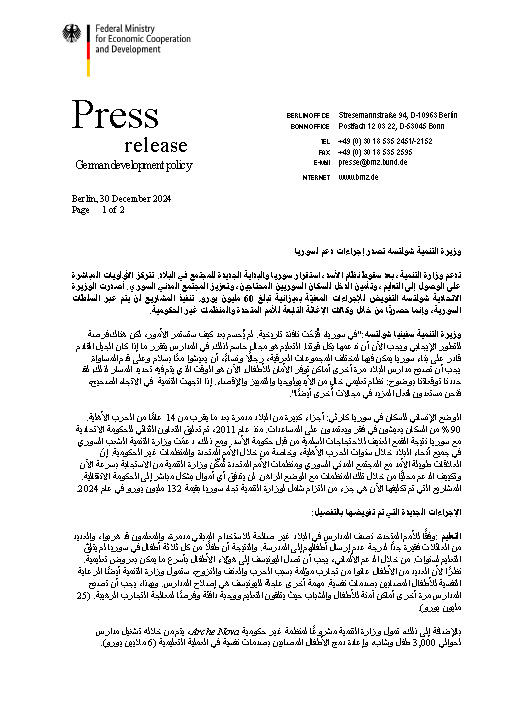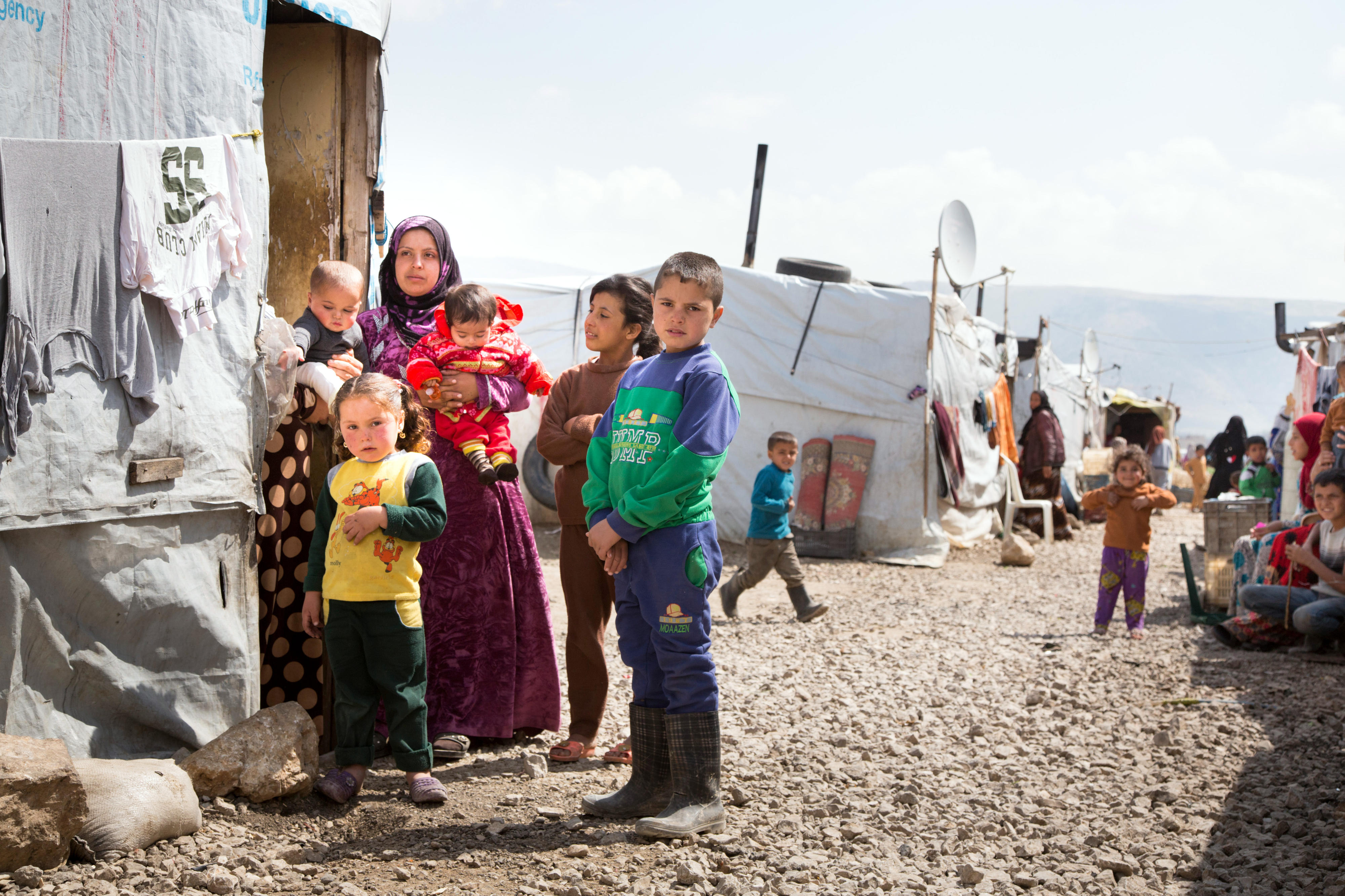Syria Development Minister Schulze gives go-ahead for support measures in Syria
Development Minister Svenja Schulze said, “this is a historic window of opportunity for Syria. The country’s way forward is still wide open. And there is a real opportunity for positive change which we should support as best as we can. One important area in that is education. It is schools that will determine the ability of the next generation to build a Syria in which different ethnic communities, men and women can live together peacefully and with equal rights. The schools of the country can and must once more become places where children are given a sense of security. Now is the time to set the course for the future. We have expressed our expectations clearly: an education system free of ideology, discrimination and marginalisation. If things move in the right direction, we are ready to also engage more in other areas.”
The humanitarian situation of the people in Syria is disastrous. Large areas of the country have been destroyed by the 14-years of civil war. Some 90 per cent of the people are living in poverty and depend on support. German bilateral cooperation with Syria has been suspended since 2011 following the violent repression of peaceful protests by the Assad regime. Nevertheless, throughout the years of civil war, the BMZ has supported the Syrian population in all parts of the country, especially via the United Nations and NGOs. These relationships going back many years with Syrian civil society and UN agencies mean that the BMZ is in a position to respond quickly and – via these implementation partners – adjust its support in the country to the situation on the ground. The proviso still is that no funds will be going to the transitional government and de facto authorities. The measures that have now been commissioned are part of the overall BMZ engagement for Syria which amounts to 132 million euros for 2024.
The newly commissioned activities in detail:
Education: According to the United Nations, half of the schools in the country are unfit for use. Buildings have been destroyed, teaching staff have been displaced, many families are too poor to send their children to school. As a result, one in three children in Syria has not attended school for years. With the support from Germany, UNICEF is to reach these children as quickly as possible with education opportunities. As many children have suffered painful experiences of war, violence and displacement, the BMZ will also be funding psychosocial counselling for traumatised children. Another urgent task for UNICEF is to repair school buildings. Schools are to become safe spaces once again where children and young people are offered education, a hot meal and programmes to help them overcome the painful experiences (25 million euros).
In addition, the BMZ is promoting a project by the non-governmental organisation Arche Nova that operates schools for some 3,000 children and young people and helps traumatised children to return to school (six million euros).
Incomes for internally displaced persons and host communities: There are seven million internally displaced people in Syria. Many were not only forced to give up their homes, but also lost their livelihoods, property and jobs. These internally displaced persons and people from Syrian host communities are to be given an opportunity via the UN Development Programme (UNDP) to generate a basic income: through short-time jobs related to the removal of waste and debris or the construction of solar plants which are urgently needed to strengthen the country’s power infrastructure (19 million euros).
Support for Syrian civil society: There are many active non-governmental organisations that have been working for years both in Syria and in the diaspora, preparing a fresh start for the time after the Assad regime. This vibrant civil society can contribute a lot to reconciliation between the various population groups and the establishment of a new political system that secures the rights and participation of all sections of the population. In order to strengthen Syrian non-governmental organisations during this critical phase, the BMZ is making funding available through the KfW initiative Building for Peace. Syrian NGOs can apply for funds for their projects to foster understanding (seven million euros).
Syria also has a strong women’s rights movement. Just recently, the first demonstration held in Damascus since the civil war was a demonstration for women’s rights. In order to strengthen the voice of Syrian women’s organisations as Syria’s society makes a fresh start, the BMZ is making funding available for a special fund run by UN Women that is dedicated to projects of non-governmental organisations in a context of displacement. The BMZ is providing three million euros in support of the special window of the fund for Syrian NGOs.
Depending on developments on the ground the BMZ will prepare additional activities to support the restart of the country in 2025.

